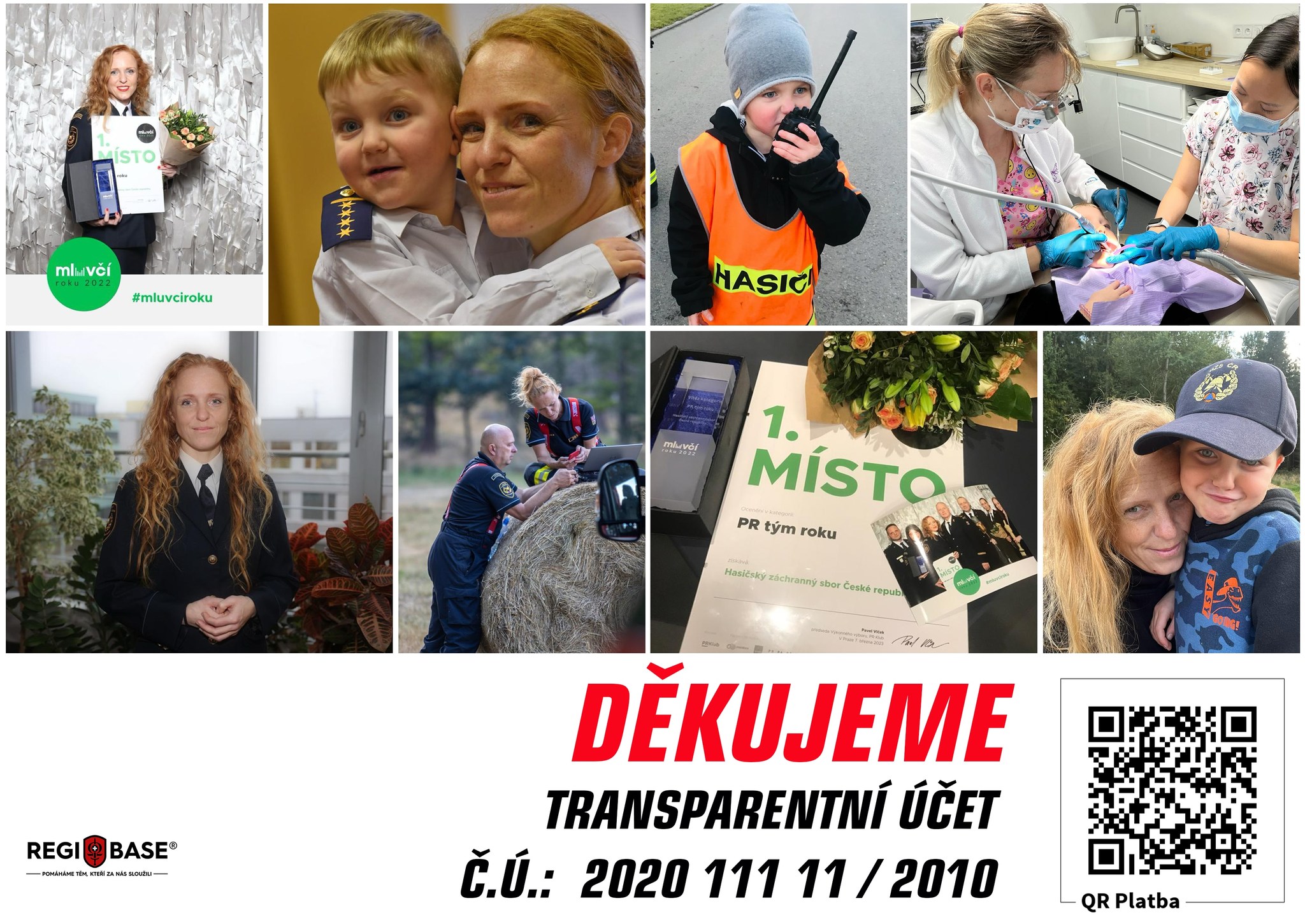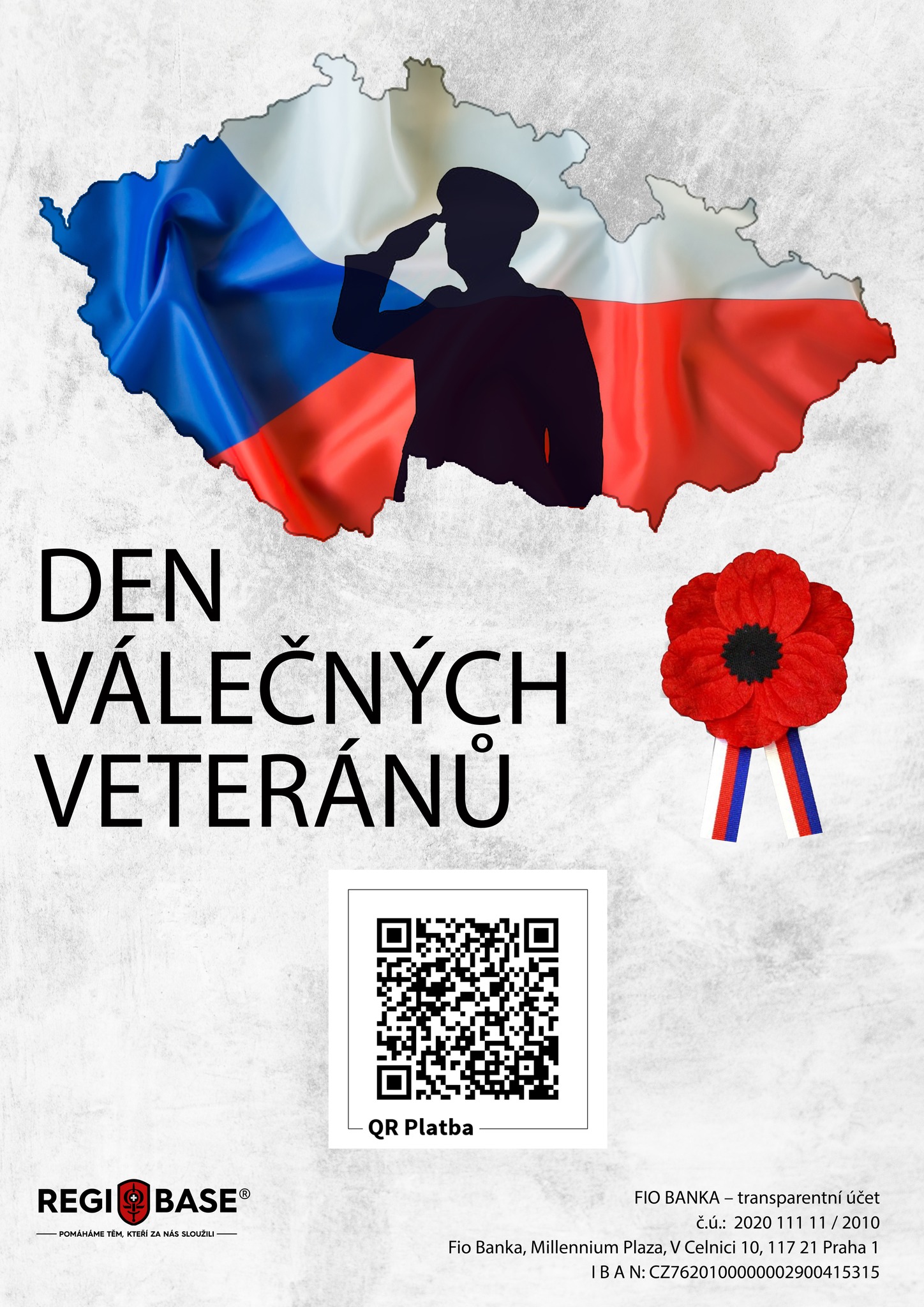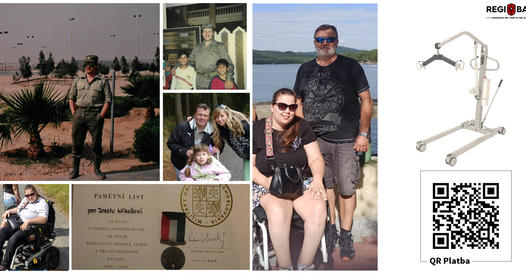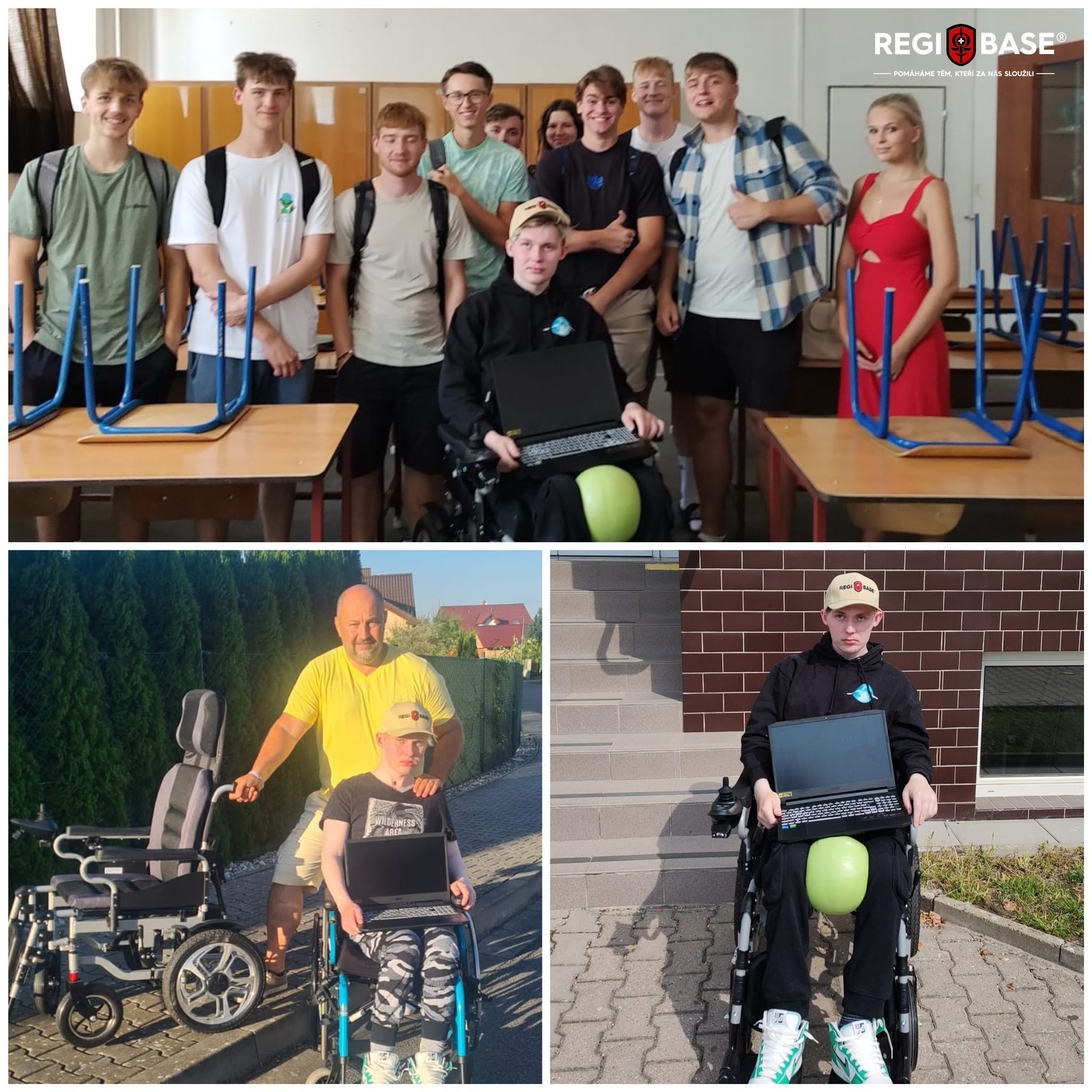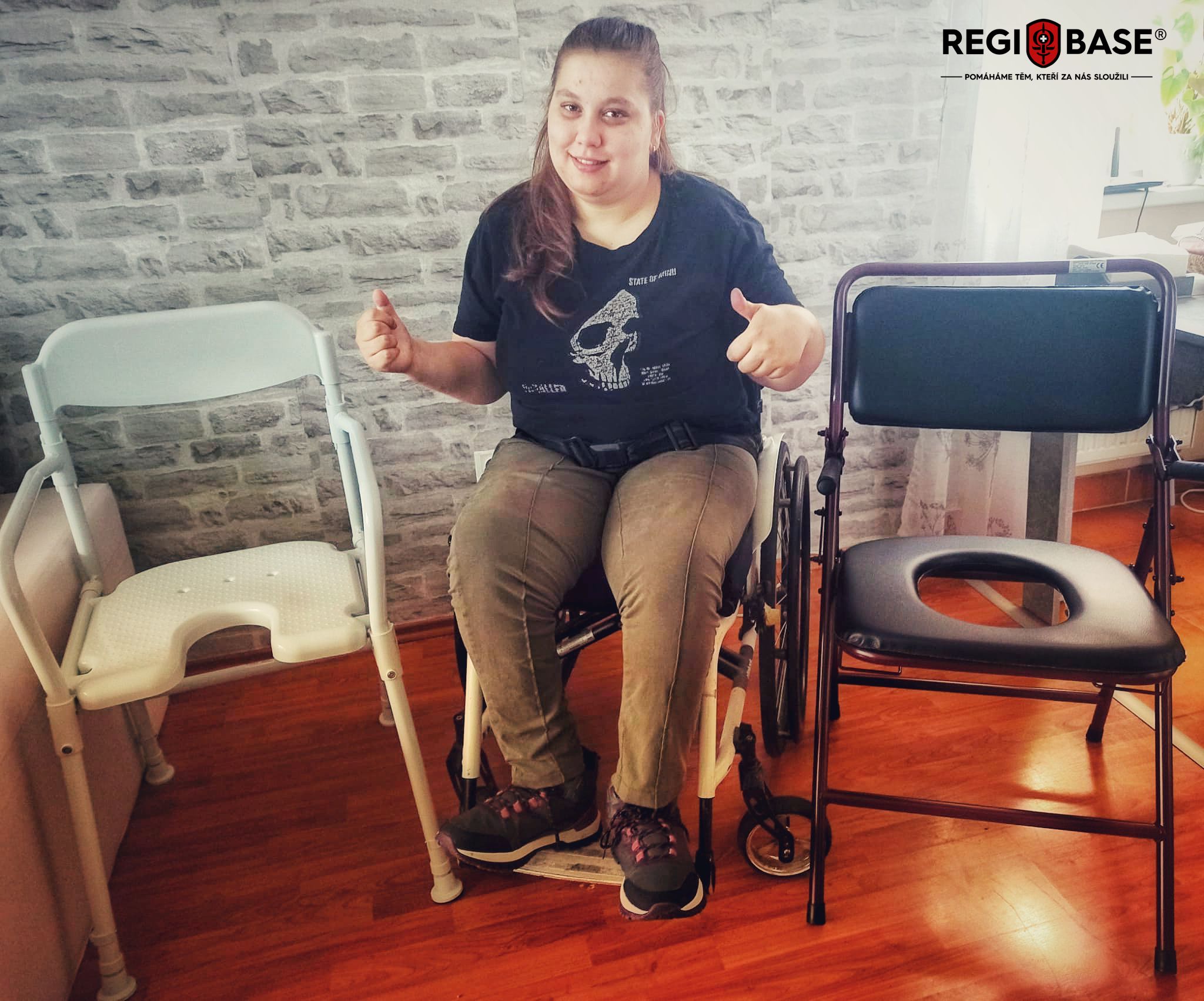A Soldier for Life
by Kent T. Wills
This is the story of Chief Warrant Officer George Schams who served in the Army of the Czech Republic as a special forces soldier in Afghanistan. It describes how his life was forever changed
after a suicide bomber ignited a powerful explosive in his unit. Also, it is the story of George’s indomitable spirit and of a private foundation named REGI Base that was inspired by Mr. Schams. For those returning veterans who have been injured, sometimes the well of faith begins to run dry.
Officer Schams and REGI Base are beginning to renew that hope and optimism literally a step at a time.
A hero is someone who has given his or her life to something bigger than oneself.
– Joseph Campbell
For many of us, life is like a meandering river where change occurs slowly and incrementally. Then, there are still others where change can be measured by months or even days. Finally, there are those whose lives change in an instant and that is the case of one Chief Warrant Officer George Schams (aka „Regi“– an endearment given to him by his former military unit due to his unrelenting passion for elite American troops such as Rangers and other special forces).
On a clear Monday morning on March 17th, 2008, many of the soldiers in George’s unit were apprehensive about their mission. They were patrolling an area known for suicide bombers and something just didn’t feel right that
morning. Regi had begun to ponder a life outside of the military, something more tranquil, without the ever-present threat of peril and danger.
Regi had been working as a medic on this tour of duty and could almost taste the end of his mission and the return to his beloved Czech Republic.
That day, some of the men said they saw a strange man dressed in traditional garb with an odd look on his face approach the convoy. Most of the men did not remember seeing anyone and no one was really sure of the true identity of
the suicide bomber.
What is certain is that a loud explosion occurred and the men’s reality was shattered in an instant, as shrapnel flew in every direction and instantly killed two Afghani passersby and four men in Regi’s unit. Two Danish soldiers died instantly, as well as Defense Team Leader Milan Sterba. Also killed in the blast was an Afghani interpreter. Out of the thirteen in Regi’s unit, four were left unscathed.
Unfortunately for Regi, he was not one of those lucky four. Out of those who were wounded Regi sustained the most serious injuries. Shrapnel impacted Regi with
a malicious intent riddling several parts of his body with the most detrimental blow striking him in the head region.
Regi was not expected to survive. His chances were weighted at almost nil from this formidable onslaught to his body, but his strength and will to survive were heavily underestimated. Regi rallied and hung on to life by a thread.
Regi’s survival instincts kicked in and the medical establishment was amazed by what they saw; how could this man possibly survive such a lethal attack?
At first, Regi was scheduled to fly to the medical unit in Ramstein, Germany, where the best possible care could be given for his special type of neurological trauma. Unfortunately for Regi, it was decided that he should be returned to the Czech Republic to live out what was left of his remaining days.
Somebody must have forgotten to inform Regi of his impending doom because, instead of dying, he continued to improve. After being flown back to the Czech Republic and laying in an induced coma, not only does he awake from the coma, but he also begins exhaustive and intensive sessions of rehabilitation.
Fast forward to the present. I enter the building where Regi’s mother currently resides. I feel both a sense of excitement and dread as we walk up
the stairs leading to the apartment, not knowing what I will encounter.
It is an older building located in the center of Prague. Although equipped with an elevator, the lift is barely large enough to squeeze in the wheelchair Regi uses to enter and exit.
The stairway leading up to his mother’s home is cool and dark, a welcome relief from this hot and steamy summer day in the middle of July.
We are initially greeted by Regi’s mother, who smiles wearily in our direction. She looks both tired and anxious as she shakes our hands and greets us in Czech.
Regi is seated in a wheel chair in the middle of the entrance. He is smiling brightly. I immediately notice that one eye is completely closed while the other is open just slightly. Later, I find out that one eye is kept closed to combat the effects of double vision from which he suffers.
Regi greets me and, at first, I am unsure about what is said but, on a second attempt I understand that „good evening“ is said to me. As I listen to him speak
to his mother, his speech is delivered in short staccato bursts which appear to be unintelligible at times.
Later on, I see that Regi knows that he is often difficult to understand but ultimately, through patience and persistence between listener and speaker, his message is conveyed.
Hynek Čech (pronounced like the country of his residence), along with Martin Jirsa and Pavel Borovsky, is one of the founding members behind the private organization known as the REGI Base Foundation. Formed in March of 2011, REGI Base was directly inspired by Regi’s life and now provides support and medical assistance to those returning from overseas combat deployments (such as Afghanistan). Hynek informs us that we will be travelling across Prague to do the interview at Regi’s home, located in a high rise apartment complex known
as a panelak* in Czech. (*square, nondescript apartment buildings built by the Russians that can be seen throughout most of Eastern Europe in which a significant portion of the population still resides)
Upon arrival at Regi’s apartment complex, the day to day struggles this man must endure are obvious. Hynek hands us the wheelchair, as Regi holds on to the railing and tries to navigate the steps of the entrance. His weight falls on the broad and powerful shoulders of Hynek, as they carefully take each
treacherous step.
At one point, I look on in horror as it appears that Regi is beginning to fall backwards but he is quickly put back in an upright position by Hynek’s capable hands. I wonder to myself how many times this scenario has been repeated in the last four years.
As we enter Regi’s apartment it is like entering a museum. The walls are adorned with various pictures of Regi in the military. Some are photos with
fellow comrades-in-arms, and in another photo he is shown with a prominent
General in the Russian military.
There is an assortment of swords, rifles and military helmets from previous
wars which he had collected from various army shops. One wall proudly displays some of his prized medals in a carefully polished glass case.
The apartment is spotless and organized exactly the way I imagine that Regi, a former soldier, would have maintained his residence. Everything is neatly and meticulously placed in its own special area. I can’t help but notice shelves filled with books. This is Regi’s own private library built over a lifetime.
This is not uncommon in the intellectually-based Czech Republic which I have seen repeated in several private homes I have visited through the years. A stark contrast to my recollections of my own past which often saw homes with a paltry array of such reading material as a recent issue of People Magazine or a TV Guide carelessly draped across the top of a coffee table.
Moments later, Regi returns for the interview in full military regalia, adorned with countless medals, accompanied by the ever-present and patient Hynek. Hynek carefully places a beret on top of Regi’s head and the interview commences.
At the interview is Josh MayO of TechForce Protective Services (TFPS), an American security company based in San Antonio, Texas. Also present is Mike Varhola, a younger cousin to American icon Andy Warhol.
Mike is a journalist and freelance writer who has come here on special assignment to conduct the interview for TFPS and write a follow-up story. He leads the interview and doesn’t hesitate to ask the tough, necessary questions that need to be addressed.
The questions are all posed in Czech to Regi and then translated to English by
Hynek.
I ask Regi if he still holds the same beliefs about the world and his life as a soldier since the incident occurred.
Regi maintains that he is still the same young man who joined the Czech Army back in 1996, and steadfastly still hangs onto the same beliefs about what it means to be a soldier.
Later, I ask Regi who his heroes are. He says „myself, of course“, and then he pauses as a broad impish grin breaks across his face and adds „also the American soldiers“. He goes on to say „I could never tell them that to their faces because
it would go to their heads and I didn’t want them to think that I was licking their boots“. Then, he begins to chuckle and finally ends with a burst of hearty laughter which echoes throughout the room.
When the interview reaches a conclusion, we are taxied back to Regi’s mother’s apartment by Hynek, and a short interview continues with Regi and his mother.
Mike asks the mother how her life has changed since the incident. Her eyes immediately well up with tears and she begins to weep. She tells us about her previous life as a nurse, at a psych ward, and how her whole life has been turned upside down in the last four years.
She goes on to talk about how her previous professional life has helped her prepare for her current life. Yet, it is still small consolation in giving her son what she truly wants, which is a more hopeful and brighter future.
I try to lighten the interview by asking how Regi was as a child. Her first response is that he was wild. This is a tender moment shared by mother and son, as they look lovingly in each other’s eyes and burst into laughter. Regi’s
infectious laughter fills the room and you can see some momentary relief spread across his mother’s face.
She also talks about the incredible memory that Regi once possessed, comparing it to a computer. The mirth and laughter subside quickly as both mother and son realize this is already a part of a distant past.
You can see the protective nature of the mother as she sits close to her son and carefully monitors his reaction to each question she is asked, tenderly searching his face for the slightest of clues.
Later, Hynek would confide in me that it took him months to gain the trust
of Regi’s mother, as he told her about the idea of REGI Base and what he had planned for Regi and other soldiers in a similar predicament.
Regi’s mother had been forced to go through a long line of bureaucratic hurdles while helping her son along with the good intentions of others which unfortunately sometimes fell short of expectations. She was naturally
highly defensive of her prized son and it took all of Hynek’s ingenuity and copious charm to finally win over her trust.
The interview turned serious again when his mother talked about all the responsibility she has had to bear for her son’s health care. She does have a
younger daughter and an uncle of Regi’s who sometimes help, but they also have families they must take care of and are not always able to lend sufficient support.
When I asked about Regi’s father, she stated that he had died a few years prior to the suicide attack in Afghanistan. I not only truly admired Regi’s courage and strength but that of his loving, dedicated mother.
As the interview came to a close, I couldn’t help but wonder how many other Regis were out there. The Regis of this world deserve our love and support. They have given their countries the ultimate sacrifice, often endangering their health and forfeiting their youth.
This is where the REGI Base Foundation comes in. It is a state-of-the-art facility that provides physical, mental and emotional help for not only returning veterans, but their families as well.
The aim is to provide quality and comprehensive health care to soldiers who are in need of it. In this regard, REGI Base provides treatment for all NATO member states and, ultimately, extends that treatment to other international forces.
The foundation’s vision is far-reaching, with a facility currently being established in the Czech Republic. While partially completed, an additional 2.5 million
U.S dollars is required to finish the project. Millions more will be needed for specialized diagnostic tools and other equipment.
In addition to this veterans‘ center in Prague, another one is planned for the United States to be located in San Antonio, Texas. Thereafter, the future includes the establishment of REGI Bases in other countries across the globe.
In a perfect world, soldiers will be rehabilitating on the serene beaches of Hawaii or by watching the placid Savannah of an African dawn.
The image of Regi and the courage he represents will be imprinted within the hearts and minds of all current and future soldiers who stay at Regi Base. It will reflect the importance of the individual and how he/she can impact the greater good of humanity.
Out of tragedy and darkness, sometimes something truly beautiful emerges or, as Mr. Campbell intimated in the earlier quote, maybe we will all become heroes and achieve immortality by becoming a part of something larger than ourselves.
Mr. Wills holds an MA in Applied Linguistics from the University of Northern Iowa and a BA in Journalism from the
University of Iowa. He currently resides with his wife and two children in the Czech Republic.
Further Information and inquiries can be found at www.regibase.cz



